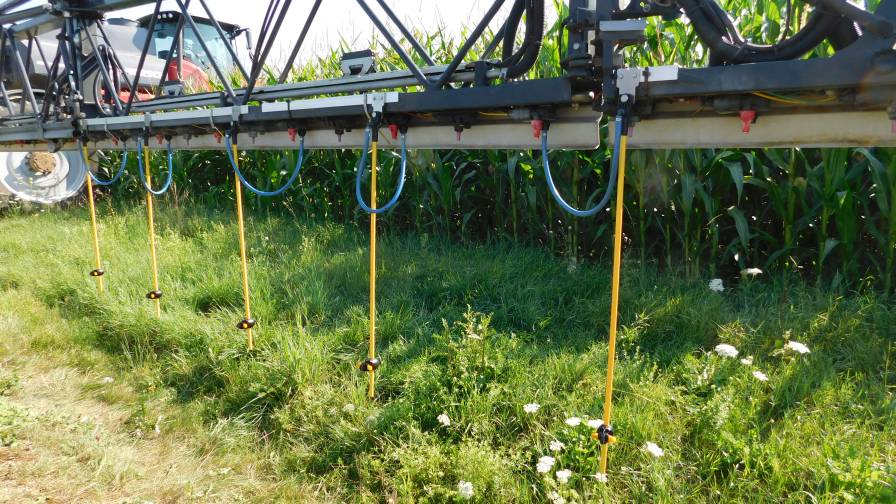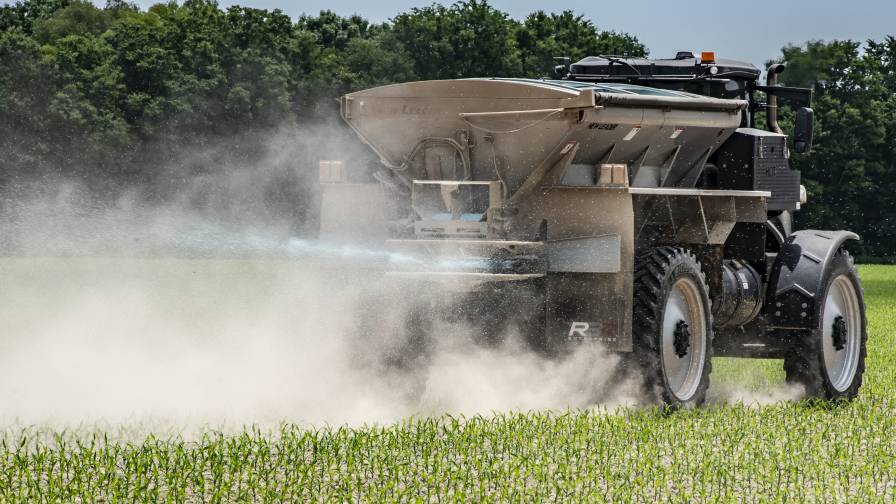Combating A New Generation Of Weeds
Traditional weed management practices are under attack as glyphosate-resistant Palmer amaranth takes a firm and frightening grip on fields throughout the Mid-south. Yet Southern growers aren’t the only ones concerned, as the now all too common sight of fields overrun with pigweed could spread throughout the Midwest, with the nuisance having already reared its head in parts of downstate Illinois and Indiana and southern Ohio.
While these yield-robbing weeds have traditionally been defeated with basic herbicides, now many growers are finding themselves “out of bullets” as the overuse of glyphosate and other technologies has further elevated the crisis of weed resistance in the U.S.
And, as former University of Arkansas weed science professor Dr. Ford D. Baldwin tells it, ag retailers are in a unique position to alleviate some of these pressures.
“I think this is really a huge opportunity for retailers, and I know retailers get pulled a lot of different ways with incentives from different companies,” he said. “One of the keys in surviving this thing is the companies with the new technologies being able to work together, but I don’t think that’s going to happen anytime soon.
“If retailers keep the growers best interest at heart,” he adds, “then I believe they can in a way force the integration of all of these new technologies without the individual companies ripping each other apart.”
Bayer CropScience, one of those companies Baldwin is referring to, is among those taking the initiative to educate growers and retailers alike on this evolving threat, and CropLife® magazine recently joined the company’s Respect The Rotation tour in Collinsville, IL, to glean valuable new information in this ongoing saga.
Revisiting Residuals
Until recently, Palmer amaranth was in many ways no different from any other run-of-the-mill weed. It is the widespread development of glyphosate-resistance in the species that has catapulted pigweed into a dubious category Baldwin refers to as “Driver Weeds,” or as he explains it “weeds that if you don’t control them, nothing else matters.”
So, in the era of glyphosate-resistance, how does one control pigweed? In the past, a correct answer to that question would be the addition of residual herbicides to the cropping plan. Not now, however.
“My message to growers is simple: don’t just use residuals, you’ve got to use multiple residuals,” said Baldwin. “You’ve got to get some diversity into your post-emergence applications, so we can save Roundup.”
The reasoning behind advocating increased residual applications is simple: herbicides in the soil can more efficiently kill the weed before germination.
“Why are residual herbicides the number one option for resistance management today?” asks Jason Norsworthy, associate professor of weed science, University of Arkansas. “It’s because they help us with our application timing, and the more you control the weeds never coming up, never germinating and never emerging, the less chance you have for resistance.”
“Also, the residuals reduce the amount of plants that you’re spraying post-herbicides on where you know you have significant, multiple resistance issues,” Norsworthy adds. “On top of that, it expands your application window so you’re spraying smaller weeds, which helps get better spray coverage too, so it is key.”
Another solid management practice that has yet to catch on, but likely will according to Norsworthy, is the overlapping of residual herbicides. “It’s not common yet but it’s starting to increase in terms of our education as well as some companies promoting it a little bit more. It always helps when a company has a particular product to offer in that overlapping of residuals, so it’s becoming a little more common and it’s definitely a direction that I think we need to go.”
With zero new herbicide technologies on the horizon, the industry must respond rapidly before resistance becomes unmanageable.
“The last new herbicide mode of action, or how the herbicide kills the plant, was discovered 30 years ago, so there’s no magic bullet coming down the pipeline,” Baldwin adds. “This is not just a farmer problem anymore. It’s an industry problem.”
A Numbers Game
With Roundup no longer effective on resistant pigweed, the days of cheap and easy weed control are long gone. As many Southern growers have no doubt learned the hard way, after infection the problem becomes so expensive and taxing that experts advise even if current pigweed populations are extremely sparse or non-existent in your area, it takes little effort for it to set up shop permanently. Being proactive, or tackling the problem before it actually becomes a problem, is a must.
“Palmer amaranth is a desert plant that just overpowers you with numbers, and it doesn’t need much water” says Norsworthy. “If you’ve got that ‘just one more year’ mentality, you’ve already lost the war. As a grower, you have to be proactive.”
Norsworthy witnessed first-hand pigweed’s prolific ability to spread. When he began his field work at the University of Arkansas back in 2007, the soybean test plot he was working on had zero pigweed plants. In 2008, same thing. Not a single plant. Then in 2009, a graduate student happened upon three pigweed plants, but Norsworthy thought little of it.
Come the very next year, and the field was, in his own words, “inundated with pigweed.” In 2011, that same field was deemed “unmanageable” by the university. All it took was five years for Palmer amaranth to completely annihilate a soybean field.
Prescribing A Regimen
Although the prognosis going forward seems dim, there are still many tools available. According to Bayer, the top choice currently among many Southern growers is the Bayer LibertyLink system for corn, cotton and soybeans. Dr. Baldwin informally estimates that over 50% of the cotton and 30% of the soybeans planted south of the Mason-Dixon line are utilizing the technology.
“LibertyLink works great, and that’s all well and good, but some of these growers you ask what their plan is for next season and they say LibertyLink, LibertyLink and LibertyLink, followed by more LibertyLink,” laments Baldwin. “But that’s not going to work, and if we do that we’re going to break Liberty quicker than we broke Roundup.”
Instead, Bayer is advocating its Respect The Rotation approach: Rotation of multiple modes of action, yearly rotation of crops and rotation of herbicide-tolerant traits. Residual applications, both pre-and post-planting, the overlapping and overlaying of multiple residuals throughout the offseason and a minimum of three modes of action combined with LibertyLink are also crucial pieces to the puzzle.
Aside from Liberty, some other management options include the family of HPPD traits and the Dow AgroSciences’ Enlist trait in corn and soybeans, and the coming dicamba and 2,4-D formulations that await EPA registration for 2013. Looking even further up the road, BioDirect, a new technology discovered by Monsanto that “uses molecules found in nature that are, like RNA, applied to diminish the production of specific proteins in the target organism,” is showing promise but is reportedly a ways down the pipeline and tentatively set for a 2014 market release.
With once-effective herbicide technologies being lost one-by-one at such a rapid rate (ALS, glyphosate, atrazine, etc.) and the number of herbicide-resistant weeds exploding from zero back in 1950 to 388 species today, agriculture’s ability to outsmart herbicide-resistance is going to make or break our global food production system going forward.






